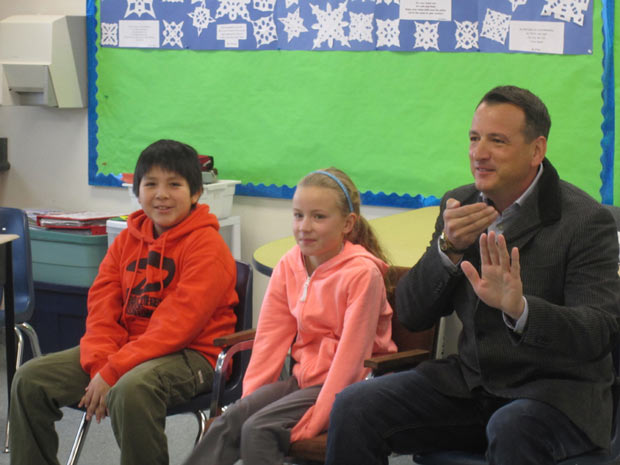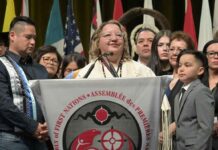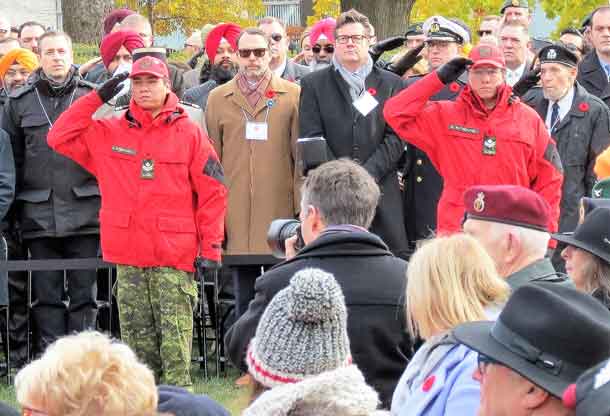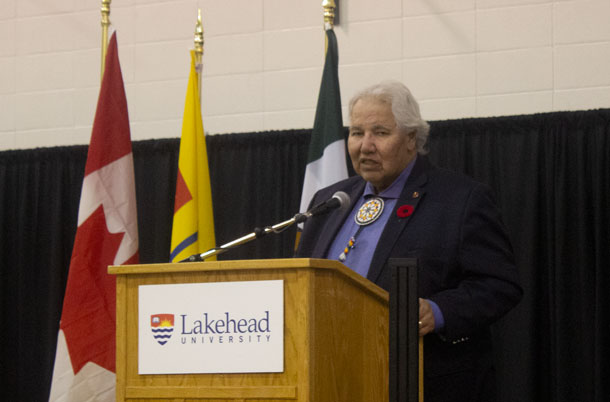
THUNDER BAY, OTTAWA – Aboriginal Education opens doors for the future. “A good education creates opportunities, opens the door to well-paying jobs and, ultimately, will contribute to healthier, more self-sufficient First Nation communities. That is why since 2006 our government has taken concrete steps to improve First Nation graduation rates,” states Jan O’Driscoll, a spokesperson for the Ministry of Aboriginal Affairs and Northern Development .
Aboriginal Education key for the future
AFN National Chief Shawn Atleo says, “First Nations seek support and understanding from all Canadians in achieving new systems and approaches that will deliver a quality education that values our languages and cultures consistent with our rights, Treaty and our respective responsibilities”.
Call to Action on Education is an initiative brought forward by Free The Children along with the Martin Aboriginal Education Initiative and will see students, educators and parents across the country learn about the challenges, achievements and contributions of Indigenous Peoples in Canada.
“There is a clear gap between what many non-Aboriginal Canadians understand about the issues and circumstances faced by Aboriginal people,” said The Right Honourable Paul Martin, founder, MAEI. “We Stand Together is a grassroots initiative that starts right inside the classroom to teach young Canadians the significance of Aboriginal history, helping to close this gap, foster understanding and raise awareness of Aboriginal culture and history in Canada for generations to come.”
“I commend these two organizations for their leadership. A better awareness of First Nation, Inuit and Métis peoples and the realities facing our communities can go a long way in breaking the many stereotypes that we still encounter in this country,” said AFN National Chief Atleo. “First Nations have issued a Call to Action on Education, a call to all Canadians to make education a door to opportunity and success. We will be unrelenting in our advocacy for justice, for hope and for opportunity for our children.”
The 10-day Call to Action campaign will run from February 25 to March 8, 2013. Olympian Waneek Horn-Miller will participat in a cross-Canada speaking tour. Waneek will be visiting schools and sharing her story with thousands of students.
Education Funding for First Nations
“We have documented the underfunding of First Nations education for many years now, and are calling for fairness and equity to support success and unlock the full potential of our people,” contends National Chief Atleo.
[sws_pullquote_right]“There is a clear gap between what many non-Aboriginal Canadians understand about the issues and circumstances faced by Aboriginal people” – Paul Martin [/sws_pullquote_right] O’Driscoll says, “Improving graduation rates for First Nation students remains a priority for our government; that is why we are working together with First Nation parents, educators and leaders to develop a First Nation Education Act, and it is why we continue to invest in education for students on reserve”.
“On a per capita basis Aboriginal Affairs provides approximately $13,524 per full-time student for elementary and secondary school. This does not include almost $304 million to maintain and improve school buildings on reserve”.
Charlie Angus, the MP for Timmins James Bay stated, “The one-year anniversary since the House unanimously voted for the Shannen’s Dream motion to ensure equality for first nations children. Rather than coming through with this promise, the government is spending millions in the courts to try to stop basic rights for first nations children. Thankfully, the children are carrying on the spirit of Shannen”.
In Ontario, the Chiefs of Ontario, advocates that “Education funding is subject to cutbacks and a 2% funding cap that have resulted in the absence of basic educational services such as libraries, computers, connectivity, sports and recreation, languages, science labs, fewer teachers, little support for special needs students, and unsafe school structures. This inequity has also translated into First Nations citizens having lower educational attainment rates. These injustices have been decried by First Nation and non-First Nation youth, through the movement of Shannen’s Dream, who have demanded “safe and comfy schools and culturally-based and equitable education.”
O’Driscoll responds, “Our government has committed to exploring with First Nations mechanisms to ensure stable, predictable and sustainable funding for First Nations elementary and secondary school education”.
“While we have made progress more still needs to be done. That is why we are working with willing First Nation partners to discuss how we can build on the progress we have made since 2006:
- Built over 30 new schools;
- Renovated over 200 schools;
- Built over 10,000 homes and renovated thousands more;
- Invested in safe drinking water systems;
- Increased funding for child and family services by 25%;
- Introduced legislation to protect the rights of women on reserve;
- Settled over 80 outstanding land claims;
- Invested in over 700 projects that link Aboriginals to job training and counseling services.
Part of the issue appears to be a disconnect between First Nations and the federal government.
In Manitoba on February 11th a meeting on education was hosted by the federal government.
Assembly of Manitoba Chiefs Grand Chief Derek Nepinak stated, “I learned that several of our people attempted to gain entrance to the ‘invite only’ consultation process and were denied access and security went as far as physically escorting and physically barring our First Nations women from the doors which lead to some people being hurt”.
“This type of physical restraint is unacceptable as is the lack of transparency and accountability being afforded to these meetings. The Assembly of Manitoba Chiefs will not allow our people to be locked out of a process that will impact our inherent and Treaty birth rights. This entire process lacks legitimacy and is non-consensual.”





